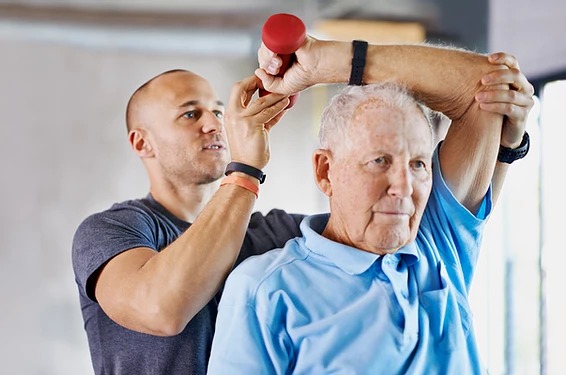It’s impossible to know all of the court rulings that have involved Medicare and Medicaid over the years. If you take the time to learn about any of them, we strongly encourage you to look into the Jimmo Corrective Action.
In a recent correspondence with our friends at the Center for Medicare Advocacy, Helayne inquired about advocacy tips and the need for an attorney when appealing Medicare’s decision to not cover an expense.
Here are the key takeaways from their response
As you advocate for your loved ones and yourselves, be aware of the Jimmo Corrective action.
When being faced with removal from a Skilled Nursing Facility or the denial of Medicare coverage for a Skilled Nursing Facility stay, families are encouraged to share the below the Jimmo materials with the facilities. This will help lay the ground work if they are incorrectly applying the “improvement standard” instead of the “maintenance standard.”
It may be the case that the beneficiary has an outside community doctor who might be able to call the skilled nursing facility and speak to them about the need for continued therapy. The community physician can help advocate for the need for therapy so, perhaps the person can be safely discharged home in the same or similar condition to where they were prior to the hospital stay and subsequent skilled nursing facility stay. It’s best if the community physician can speak directly to the doctor providing orders in the Skilled Nursing Facility to help prevent any confusion.
If advocating up front does not work, then the family and/or Medicare beneficiary may need to appeal the decision. Upon termination of the covered care the beneficiary should be given the Skilled Nursing Facility Advance Beneficiary Notice as well as the Notice of Medicare Non Coverage (NOMNC). The NOMNC will explain how a person can request an expedited appeal with the Beneficiary and Family Centered Quality Improvement Organization (BFCC-QIO). The beneficiary, their family, a caregiver or even the community doctor can contact the BFCC-QIO to argue/explain why the services continue to be reasonable and necessary. It would also be a good idea to give the BFCC-QIO the Jimmo material. The first two levels of review are expedited but unfortunately if it goes to the Administrative Law Judge (ALJ) level of review the beneficiary has to wait for a hearing and a decision. So strong advocacy up front is necessary to keep the services in place and get coverage.
We encourage a beneficiary faced with this situation to review some of our self-help material to help them better understand the Skilled Nursing Facility Medicare coverage criteria as well as the appeals process to help keep services in place.
https://medicareadvocacy.org/toolkit-medicare-skilled-nursing-coverage-and-jimmo-v-sebelius/
https://medicareadvocacy.org/new-checklist-for-improvement-standard-denials/
Administrative Law Judge hearing- Appealing Medicare
The default method for an Administrative Law Judge (ALJ) hearing for unrepresented beneficiaries is a video teleconference hearing whereas the default method for a represented beneficiary is a telephone hearing. Although many beneficiaries are reluctant to even attend the ALJ hearing we would argue that a teleconference hearing where you can see the ALJ is more effective than a telephone hearing.
There are define pros and cons to engaging an attorney to assist you when appealing a Medicare decision.
PROS:
- An attorney is trained to and is likely in a better position to research and analyze the Medicare law.
- An attorney will also likely be in a better position to gather and present the evidence to the judge, make a legal argument for coverage, and cross-examine adverse witnesses during the hearing.
CONS:
- The cost. It can be very costly to have an attorney represent you and even with representation there is no guarantee a beneficiary will receive a favorable result.
With respect to whether an attorney is recommended, there are a lot of things to consider. The first of course is the cost of legal representation and whether that makes sense in light of the cost of the denied item or service. We have seen Medicare cases range from a couple hundred dollars, just meeting the amount in controversy threshold, to $50,000. Another consideration is the complexity of the legal issue and the reason for denial. Over the years we have seen many beneficiaries get successful results with no legal representation when the issues and the law are relatively straight forward. Another consideration is whether the beneficiary has someone else who might be able to represent them. Representation during a Medicare appeal can be from someone other than an attorney. A representative can also be a spouse, a friend, a power of attorney, a conservator, etc. We have found that someone close to the beneficiary who is very familiar with their condition and their needs may be in the best position to present the facts and make a convincing argument for coverage. Finally, it’s important to evaluate someone’s competency and whether they would be able to proceed without representation. You also asked for more information on the basics webinar. Legal Training can be found on the National Center on Law & Elder Rights website. https://ncler.acl.gov/Legal-Training.aspx Toward the bottom of the website if you scroll through the legal basics tab you will find Legal Basics for “Medicare Appeals in Part A and B”. There is a recording of a past webinar, the power point and a chapter summary that gives an overview of the appeals process.






















0 comments